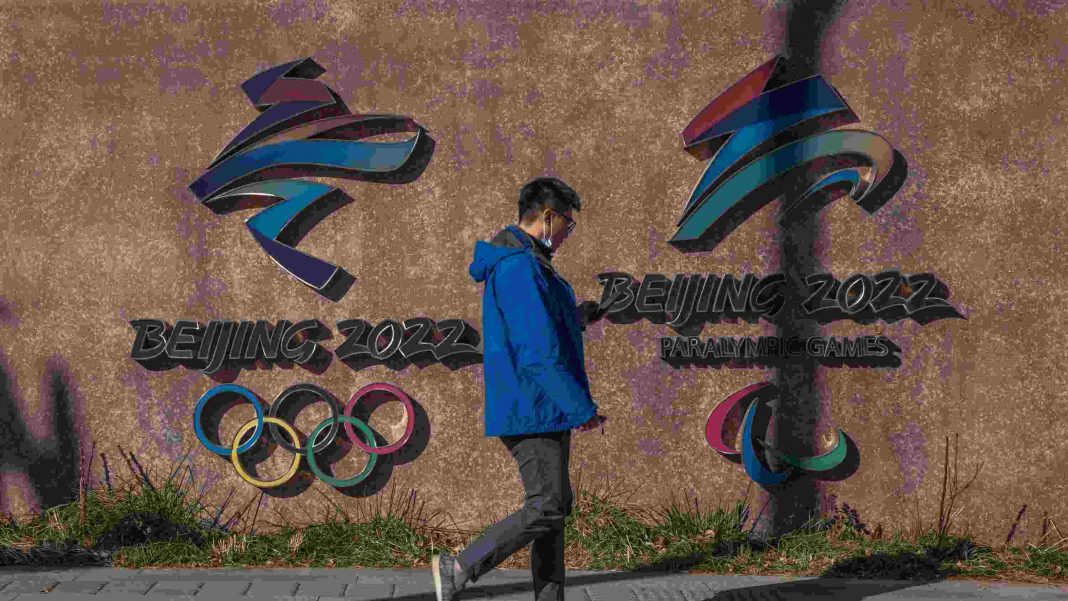It is a smack in the face of China’s human rights atrocities that the United States will not send government officials to the 2022 Winter Olympics in Beijing.
However, although the diplomatic boycott permits American athletes to participate, it is widely seen as an insult to Beijing, and it is one of President Biden’s most prominent condemnations of the Chinese capital. “Resolute countermeasures,” China said in response to the U.S. sanctions.
Members of Congress from both parties have been putting pressure on China for months to hold the country responsible for human rights violations against Uyghur Muslims in the Xinjiang region and crackdowns on pro-democracy demonstrations in Hong Kong. It was only after the disappearance from public life of tennis sensation Peng Shuai, who had accused a prominent Communist Party official of sexual assault, that the cries for action became more intense.
Officials from the White House stated they did not feel it was acceptable to send a group of U.S. officials to the Winter Olympics in February after “genocide and crimes against humanity” in Xinjiang, according to Jen Psaki, the White House press secretary.
The option of not sending the American delegation to China was broached by President Joe Biden during his virtual meeting with Chinese President Xi Jinping last month.
That talk was intended to defuse the escalating tensions between the world’s two most powerful countries. Despite a succession of differences, Mr. Biden and Mr. Xi exited from their three and a half-hour meeting with nothing more than commitments to strengthen collaboration in their future interactions with one another.
Democratic Senator Bob Menendez of New Jersey, head of the Senate Foreign Relations Committee, described the boycott as “a strong condemnation of the Chinese Communist Party’s campaign of genocide in Xinjiang.”
Members of Congress who are more hawkish, such as Senator Tom Cotton, Republican of Arkansas, have criticised the action as a half-measure.
However, earlier efforts to make competitors withdraw from the Games have failed miserably. At the Summer Games in Moscow in 1980, President Jimmy Carter rallied against allowing athletes to compete in order to protest the Soviet Union’s military presence there. This was the last time that the United States pursued a full boycott of the Olympics, which occurred in 1980 to protest Soviet military presence in Afghanistan.
Despite the fact that dozens of nations joined the United States in that move, most political leaders and sports executives have contended in the decades afterwards that complete boycotts merely serve to penalise players while generating talking points for host countries.
After the 1980 U.S. Olympics boycott was lifted, Sarah Hirshland, chief executive of the United States Olympic and Paralympic Committee, wrote an open letter to the athletes of the 1980 U.S. Olympic team, stating that the boycott “had no impact on the global politics of the era and instead only disadvantaged you.”
In a statement released on Monday, Ms. Hirshland said, “We are grateful for the steadfast support of the president and his administration, and we are certain that they will be rooting for us from home this winter.”
Former Chinese President Hu Jintao utilised the Olympics to promote his country’s renaissance on the international scene, most recently in 2008, when the opening ceremony was used to highlight the country’s economic renaissance. The worldwide spotlight, on the other hand, did nothing to enhance the situation of human rights in China. He has said that rooting out such transgressions is a critical component of a national security policy aimed at contending with China’s growing economic power and coercive diplomacy.
Mr. Provost went on to say that the Olympics are an opportunity for China to demonstrate that it is “powerful and central on the world stage.” In that case, including human rights in the image would be counterproductive to China’s message. ”
In a statement last month, Secretary of State Antony J. Blinken said that the administration was in discussions with allies about how they intended to approach the Games, but he did not clarify whether the United States had requested that they participate in a concerted boycott. According to two European diplomats who were part in the negotiations, the administration has maintained the informal contacts throughout the previous few weeks.
In the words of a diplomat, the boycott was a pragmatic gesture that expressed the Biden administration’s dissatisfaction with Beijing’s actions, but did not amount to a complete snub, in order to provide space for continued discussions between the United States and China. Both diplomats said that no decisions had yet been taken on whether or not European nations would likewise opt out of sending formal delegations to the Games.
With the case of Ms. Peng, the Chinese tennis star who has accused a former high government official of sexually assaulting her, demands for a boycott have gotten stronger. Because of the claim, the Chinese authorities took down practically all references to her on social media platforms inside the nation, and she vanished from the public eye entirely.
Ms. Peng made public appearances with Chinese leaders last month, but it was unclear how freely she was permitted to communicate with the public.
Before President Joe Biden’s virtual global democracy conference, which will take place later this week, the news of the boycott comes as part of an attempt to take a public statement against dictatorship and corruption. China was not invited to the summit, which was attended by more than 100 nations.

